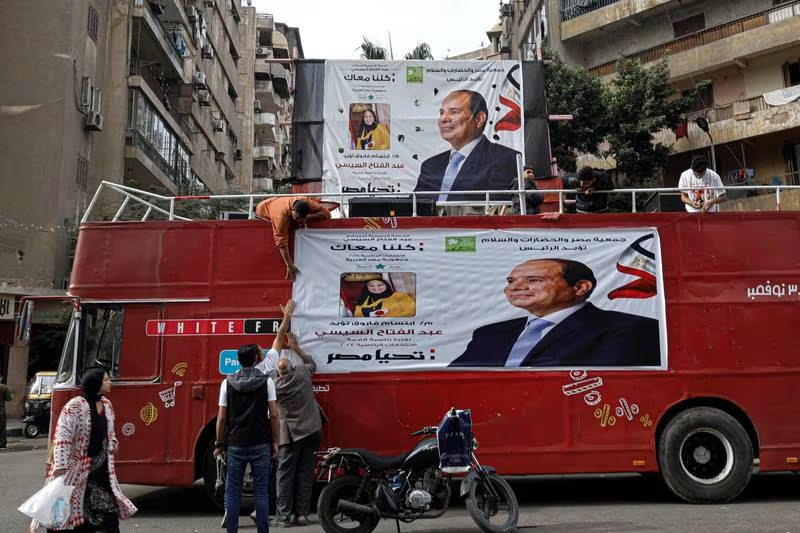Egypt's Presidential Election: The Struggle for Civic Engagement Amid Economic Turmoil
As Egypt prepares for its upcoming presidential election, a notable segment of the populace finds itself disengaged and disillusioned amidst the country's economic challenges. President Abdel Fattah El Sisi, widely expected to secure another term, faces a citizenry grappling with the repercussions of Israel's conflict in Gaza and a domestic economic crisis of unprecedented proportions.
Magdy Omar's story encapsulates the prevailing sentiment, as a once middle-class individual turned taxi driver due to job loss, he has little time or inclination to participate in the electoral process. Omar's sentiments reflect a broader trend of economic hardship, with inflation surpassing 35 percent in October, marking the highest in Egypt's history. The lack of corresponding wage increases exacerbates the strain on the population, contributing to a sense of disillusionment with the political establishment.
While President El Sisi's victory seems inevitable to many, it has resulted in a perceived futility in participating in the electoral process. The omnipresence of billboards featuring El Sisi's image across Cairo further amplifies this sentiment, turning the election into a seemingly predetermined outcome.
Yet, amid the prevailing apathy, there is an underlying narrative of citizens yearning for responsive governance. The economic hardships faced by millions underscore the urgency for comprehensive policies addressing inflation, unemployment, and the cost of living. As Egypt navigates these challenging times, the voices of those like Magdy Omar illuminate the need for a reinvigorated political landscape that genuinely addresses the concerns of the people and fosters civic engagement beyond election cycles.




Comments
Post a Comment